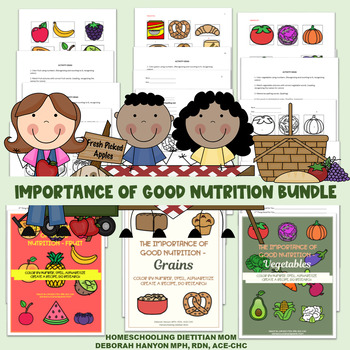
Getting healthy on a budget doesn't mean having to sacrifice nutrition. There are many things you can do to save money when cooking healthy meals.
A diet that consists of less meat is one way to eat healthily on a limited budget. You can save money by consuming less meat and open up other sources of protein. For example, you could make your own chickpea-based vegetarian pasta. These legumes are rich in protein, potassium, zinc, and other nutrients. You can also use them to make delicious hummus.
Another way to save money is to buy your foods in bulk. Certain staples are more affordable in large sizes so you can share them with friends and family. You can also freeze your favorite foods for later use. Frozen vegetables are just the same as fresh. Frozen fruits are also excellent in smoothies.

You can also save money by buying foods in season. The cost of fruits and veggies that are in season is usually lower and they taste better. Local foods can be purchased to support the local economy.
Planning your meals is an alternative way to eat healthy while on a budget. This can help you avoid impulse purchases and ensure that you use your money wisely. Planning meals can help you cut down on the cost of takeout. It is important to have a grocery list so you don’t buy things that aren’t on it. By planning meals, you can save money and reduce food waste.
If you want to eat well on a budget, avoid purchasing processed foods. These can be found at the edge of your grocery shop. These products tend to have a lot of added sugars and sodium. Many of them are also low in nutritional value. You should also avoid buying candy. You can also find healthier options online.
Frozen vegetables are another way to save money. It's possible to buy large bags of vegetables, and freeze them. These items can also be added to stir-fries. To make a quick meal, freeze leftover meat. Also, leftover meat can be made into a salad. You can also use the meat in a quesadilla.

Make your own meals for healthy eating. This may seem like an impossible task but it's actually very easy. The first step is to create a budget for your grocery bill. Consider your family size, income, and the cost of living in your local area. You can also use a grocery shopping app to make your grocery list. If you sign up for store rewards programs, you'll be able to save time and money.
You can also save money by purchasing your staples on sale. These items can last for a while so it is a good idea to buy them on sale.
FAQ
How often should I exercise
Exercise is essential for maintaining a healthy lifestyle. But, you don't need to spend a specific amount of time exercising. Finding something that you love and sticking with it is the key.
If you exercise three times a week then aim for 20-30 mins of moderate intensity. Moderate intensity means you'll still be breathing hard after you've finished. This type works out burns around 300 calories.
Walk for 10 minutes four days a semaine if you prefer walking. Walking is low impact and easy on your joints.
If you'd rather run, try jogging for 15 minutes three times a week. Running is an excellent way to lose weight and tone your muscles.
Begin slowly if your are new to exercising. Begin with 5 minutes of cardio every other day. Gradually increase duration until you achieve your goal.
How can I get enough vitamins
The majority of your daily nutritional needs can be met solely through diet. However, if you are deficient in any particular vitamin, taking supplements can help. You can purchase a multivitamin that includes all the vitamins needed. You can also get individual vitamins at your local drugstore.
If you are concerned about getting enough nutrients, talk to your doctor about what foods contain the best sources of vitamins. For example, dark green leafy vegetables such as spinach, broccoli, kale, collard greens, turnip greens, mustard greens, bok choy, romaine lettuce, arugula, and Swiss chard are rich in vitamins K and E. Other good sources include oranges, tomatoes, strawberries, cantaloupe, carrots, sweet potatoes, pumpkin, and squash.
Ask your doctor to help you determine the right amount of vitamin. He or she will recommend the appropriate dosage based on your medical history and current health status.
How can I control my blood pressure?
Find out the causes of high blood pressure first. Then, you can take steps to lower your blood pressure. This could be as simple as eating less salt, losing weight (if necessary), or even taking medication.
You also need to make sure you are getting enough exercise. Try walking if you don’t find the time.
If you're not happy with how much exercise you're doing, then you should consider joining a gym. You will probably join a gym that is open to other people with similar goals. It's easier to stick to an exercise routine when you know someone else is going to see you at the gym.
What is the best diet for me?
Your lifestyle and individual needs will determine the best diet for your body. Also, consider your energy expenditure, your preference for low-calorie food, and whether you enjoy eating fruits or vegetables.
Intermittent fasting might be an option for you if your goal is to lose weight. Intermittent fasting allows you to consume only specific meals throughout your day rather than three large meals. You might find this way to be more beneficial than traditional diets, which have daily calorie counts.
Some studies suggest that intermittent fasting may improve insulin sensitivity and reduce inflammation, which can lead to improved blood sugar levels and reduced risk of diabetes. Intermittent fasting has been shown to promote fat loss as well as improve overall body composition.
What should you eat?
You should eat lots of vegetables and fruits. They are rich in vitamins, minerals, and help to strengthen your immune system. Also, fruits and veggies are rich in fiber. This makes them filling as well as helping with digestion. Try to include at least five servings of fruit and veg per day.
Water is essential for your body. Water flushes toxins out of the body and helps to feel full between meals. Drink about eight glasses each day.
Refined grains should be replaced with whole grains. Whole grains have all the nutrients they need, including B vitamins. Refined grains are stripped of some of their nutritional value.
Avoid sugary drinks. Sugary drinks are high in empty calories and can lead to obesity. Instead, opt for water, milk, or unsweetened tea.
Avoid fast food. Fast food is very low in nutrition. While it might taste good, it won't give your body the energy it needs to function properly. Instead, stick to healthier options like soups and sandwiches, pasta, and salads.
Limit alcohol consumption. You can reduce your intake of alcohol by limiting the amount of empty calories. Limit your consumption to no more then two alcoholic beverages per week.
Reduce your consumption of red meat. Red meats contain high amounts of saturated fat and cholesterol. Choose lean cuts such as beef, pork and lamb, chicken, fish, or turkey.
How can I live my best life everyday?
The first step towards living your best life everyday is to find out what makes you happy. Once you've identified what makes your happy, you can start to work backwards. You can also inquire about the lives of others.
You can also check out books like "How to Live Your Best Life" from Dr. Wayne Dyer. He talks about finding happiness and fulfillment in all aspects of our lives.
Statistics
- Extra virgin olive oil may benefit heart health, as people who consume it have a lower risk for dying from heart attacks and strokes according to some evidence (57Trusted Source (healthline.com)
- nutrients.[17]X Research sourceWhole grains to try include: 100% whole wheat pasta and bread, brown rice, whole grain oats, farro, millet, quinoa, and barley. (wikihow.com)
- WHO recommends reducing saturated fats to less than 10% of total energy intake; reducing trans-fats to less than 1% of total energy intake; and replacing both saturated fats and trans-fats to unsaturated fats. (who.int)
- This article received 11 testimonials and 86% of readers who voted found it helpful, earning it our reader-approved status. (wikihow.com)
External Links
How To
How to Live a Healthy Lifestyle
A healthy lifestyle is one that allows you to maintain your weight, your health, and your fitness. It involves living a healthy lifestyle, which includes exercising regularly, eating well, and staying away tobacco, alcohol, and other drugs. A healthy lifestyle can help you stay fit and feel great. In addition, a healthy lifestyle reduces your risk of chronic diseases like heart disease, stroke, diabetes, cancer, osteoporosis, arthritis and many others.
This project had the main objective of providing a step-by–step guide to living a healthier lifestyle. The first part of the project consisted of writing the introduction, which explains what a healthy lifestyle is, why people should adopt a healthy lifestyle and who we are. Next, I wrote the body paragraphs. These include tips and tricks for maintaining a healthy lifestyle. Finally, I wrote the conclusion. It summarises the entire article and offers additional resources, if needed.
I was able to learn how concisely and clearly I could write my paragraphs through this assignment. Also, I learned how my ideas could be organized into topic sentences or supporting details. Furthermore, I was able to improve my research skills by being able to identify specific sources and correctly cite them. Lastly, I gained knowledge on how to use proper grammar when writing.